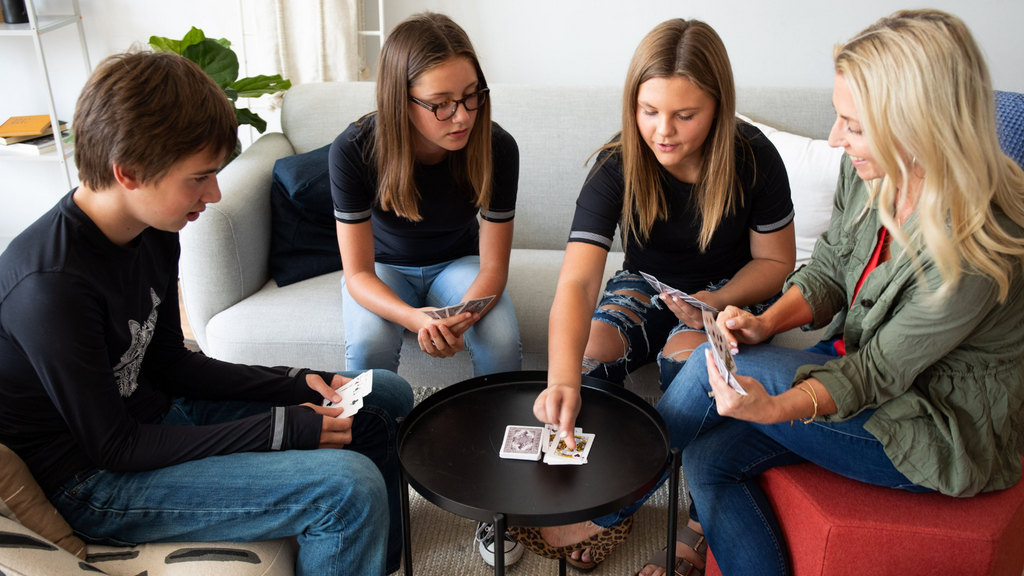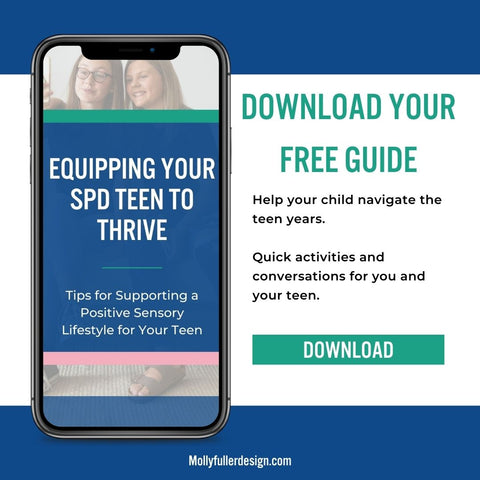If your child has sensory processing disorder (SPD) and goes to school, you’ve officially got a big title: ADVOCATE.
Michelle Morris, parent of a child with a Sensory Processing Disorder and SPD advocate puts it this way,
“We are our children's only full-time advocate. Our kids need us to learn as much about their disorders as we can. They need us to understand what they are going through, every day. They need us to feel how frightening and chaotic their world can be. Above all else, they need us to be their advocates.
To say, ‘No more’ when it needs to be said.
To say, ‘You can do it, I know you can!’ when we know they can.
To say, ‘I know what he needs’ because we really do.”
You heard that right, don’t be afraid to speak up. You don’t need to be rude or loud to embrace your role as your child’s advocate. But it’s up to you to get in there and make sure your child gets the understanding and services they really need.
Understanding School Special Education Lingo
When you enter the school system, you might get hit by a blast of confusing acronyms and terms. Not knowing what people are talking about can limit your ability to advocate for your child. Here are some quick summaries to get you started.
IDEA
Individuals with Disabilities Education Act (IDEA) is the law that made it mandatory for schools to provide equal access to education to children with disabilities. You might hear school team members make statements along the lines of, “Your rights under IDEA include…”
IEP
The most structured and extensive process is known as an IEP or Individual Education Plan. There is an official yearly process including evaluation and meeting for parents and school team to put together the IEP plan. The goal is for the whole team to collaborate to develop a plan to meet your child’s needs in the classroom.
Sensory processing disorder alone does not qualify your child for special education or an IEP. However, some children do qualify for an IEP under a related disability such as ADHD or Autism. That brings us to the next important term, 504 Plan.
504 Plan
This is a written plan that lists out the accommodations that a school will provide your SPD child. It’s common for accommodations for sensory processing disorders to fall under this category within the school system. This is a less extensive process and can be a path for kids who are not in special education but need some specialized supports.
Some additional resources:
- Understanding the difference between an IEP and 504
- Understanding the IEP process from start to finish
Preparing to Be Your Child’s Advocate During Important Meetings
When it comes to IEP and 504 meetings, some schools do a great job of making these meetings a good experience and others do not. As you begin your relationship with the school system, expect good things but come prepared in case you need to step up to bat for your child.
Prepare for your school meetings with the following in mind:
- Your opinion as the parent matters, so don’t be afraid to speak up for your child’s needs.
- Your meeting matters. It is your main chance to get your concerns addressed while everyone is there. Don’t leave without naming the services your child needs.
- It can be emotional to hear all of your child’s challenges in one meeting. It’s alright to show emotion but remaining calm allows you to better advocate for your child.
- Bring a trusted friend or parent advocate if you need extra support or someone to take notes.
- Prepare ahead of time by listing your concerns, hopes, and even key phrases to use during the meeting.
To get an idea of what to expect, sometimes it can be helpful to talk with other parents with kids in special education in your school district.
As with all things, you get better with practice. You’re likely to have several school meetings over the course of your child’s academic journey, so it can be beneficial to journal about your thoughts before and after a meeting to refer to later.
School Team Members You Might Meet
Just like the slew of new terms and abbreviations, you might be overwhelmed by figuring out the roles of different team members. Here’s a quick list of team members and their roles to get you started:
Occupational therapist
Helps with interventions to address underlying sensory processing issues and provides recommendations to help in the classroom.
Even with school OT, you might need to find a private OT who can provide additional expertise and individualized time for your child.
Speech therapist
Addresses language, coordination for speaking and eating, and setting up alternative communication devices.
Physical therapist
Works with your child on coordination and body awareness but is generally less commonly involved in the school system for SPD kids.
Teacher
The team member who works with your child most closely on a daily basis. It’s worth the effort to build a good relationship here. Find out their preferred method of communication and make sure to share key information about your child at the beginning of the year.
School Administrator
A representative from the school district who’s in charge of committing school resources to the needs of your child.
School Counselor or Psychologist
Completes and interprets testing and sometimes helps organize school supports.
And you!
Never forget in the context of all these school professionals, you’re still the expert on your child. Come ready to learn from these resources but also confident in your knowledge as a parent!
Information to share about your child:
- Sensory situations that are hard for your child.
- Behaviors that are the result of sensory processing disorder (not willful misbehavior on the part of your child).
- Tried-and-true sensory strategies that have worked in the past.
You lead the way by reminding team members of the amazingness of your child and your absolute dedication to finding positive solutions to the challenges that come up in the sensory-rich environment of their school.
Sensory Classroom Supports to Help Your Child With SPD
The good news is that there is a lot that can be done to set your child up for success in the classroom! SPD kids with the right supports can be highly successful in school.
Here are some quick ideas to get you started:
- Seating that is the right size or even encourages classroom acceptable movement
- Sensory breaks during the day
- Fidgets and chewable items
- Providing a quiet space
- A weighted vest or lap blanket
- Proactive behavior plan that takes into account sensory triggers
- Colored filters over worksheets to decrease the black and white contrast
- Headphones for loud activities or areas
It might take some trial and error and collaboration with the team to find the exact supports for your child. But know there are many options, and the right ones for your child can and will make a big difference.
Besides being an amazing advocate for your child, you equip them every day with the encouragement and support to walk through a sensory-rich world inside and outside of school.
Make this journey a little easier with sensory-friendly clothing from Molly Fuller.






Leave a comment: